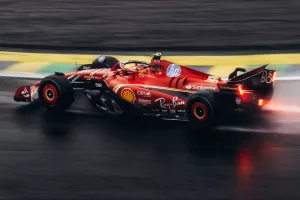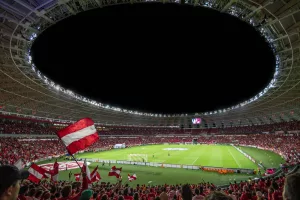So, you want to get really good at soccer?
Not just okay. Not decent. But actually good—the kind of player who controls the tempo, leaves defenders behind, creates space from nothing, and changes the game the moment they touch the ball.
Here’s the hard truth: getting really good at soccer takes more than just showing up to practice. It requires commitment, strategy, consistency, creativity, and obsession with improvement. Whether you’re dreaming of turning pro, aiming to dominate in college or club leagues, or simply chasing personal greatness—this guide will take you deeper than generic advice and give you the real roadmap.
Let’s break it down into the essential domains:
- Technical Skill
- Tactical Intelligence
- Physical Development
- Mental Toughness
- Game Experience
- Lifestyle & Discipline
- Continuous Growth
This isn’t a checklist—it’s a lifestyle.
Part 1: Technical Skill – The Craftsmanship of Touch
Everything in soccer begins and ends with the ball. Your relationship with it defines your ceiling.
1. Develop Elite Ball Mastery
Juggling is just the start—it’s your foundation. But ball mastery means owning the ball in any situation, not just when it’s convenient.
- Work in tight spaces (small backyard, garage, hallway).
- Use cones, shoes, or water bottles as dribbling obstacles.
- Train inside, outside, sole, and heel touches.
- Learn to kill the ball dead on reception—like it obeys you.
Great players don’t chase the ball. They control time with their first touch.
2. Dribble With Intent, Not Just Flair
There’s a difference between looking good and being effective. Build a catalog of functional dribbling moves:
- Inside-out feints
- Stepovers
- Croqueta (Iniesta move)
- La Croqueta
- Body feints
- Change-of-pace acceleration
Spend time watching the likes of Messi, Foden, Sancho, or Ousmane Dembélé. Study how and when they dribble—not just what moves they use.
3. Passing and Receiving Under Pressure
Wall passes alone won’t cut it. Practice:
- One-touch passing at game tempo
- Disguised passes using body shape
- Switching the play over 30–50 yards
- Receiving on the half-turn in tight spaces
Find a partner or use a wall and simulate real-game pressure. Every elite passer learned to be clean and quick before they had space.
Part 2: Tactical Intelligence – Thinking the Game Like a Pro
Technical skill gets you on the field. Tactical intelligence keeps you there.
4. Understand Positional Play (Juego de Posición)
Modern football is built on space management. Great players know:
- When to move into space
- When to create space for others
- How to form triangles and passing lanes
- How to break lines with passes or movement
Watch teams like Manchester City, Barcelona, and Spain. Note how midfielders and wingers position themselves off the ball. Start applying that in your own matches.
5. Learn When to Slow the Game Down
Not every moment is a sprint. Knowing when to slow down, recycle possession, and control tempo separates street players from real playmakers.
Ask yourself during games:
- Is this a moment to drive forward or retain the ball?
- Is the space behind open or congested?
- Can I create a numerical advantage by holding the ball another second?
Thinking like a metronome—like Busquets, Kroos, or Verratti—is a game-changer.
6. Be a Student of Systems
Understand the system your coach uses and how your role changes in different formations:
- As a winger in 4-3-3 vs. 4-2-3-1
- As a defender in a high line vs. deep block
- As a striker when pressing vs. counterattacking
Tactical awareness means you don’t just play your position—you read the entire game and make everyone around you better.
Part 3: Physical Development – Engine of Excellence
Soccer demands a unique blend of physical traits: speed, endurance, strength, agility, and resilience. You must train your body like an athlete—not a gym bro.
7. Build Soccer-Specific Endurance
Forget long-distance jogs every day. You need high-intensity interval work:
- Sprint 20 seconds / Jog 40 seconds (repeat 10–15x)
- 4×4 intervals (4 min high intensity / 3 min low)
- 3v3 games with 60-second shifts at full intensity
The fitter you are, the more technical and mentally sharp you’ll be in minute 89.
8. Train Like an Explosive Athlete
- Plyometrics for vertical and lateral explosiveness (jump squats, bounding)
- Sled pushes, hill sprints, and resistance bands for acceleration
- Agility ladders, cone drills, and change-of-direction runs weekly
Speed is teachable. Quickness is trainable. Reaction time is buildable.
9. Stay Injury-Resistant
Strengthen your joints and prevent burnout:
- Single-leg exercises (bulgarian split squats, single-leg RDLs)
- Mobility work (hip openers, hamstring rolls, thoracic twists)
- Core training (planks, anti-rotation, hanging leg raises)
A broken body is a benched player. Durability is a skill.
Part 4: Mental Toughness – The X-Factor No One Sees
10. Embrace Failure as Fuel
Every missed shot, every bad game, every dropped pass—it’s all data.
Most players get discouraged. Elite players review, reflect, and refine.
- Rewatch your games (if filmed)
- Ask coaches for brutally honest feedback
- Keep a training journal: What did I do well? What needs work?
Mistakes aren’t setbacks. They’re clues to progress.
11. Build Your Inner Voice
Your mindset during games will make or break your performance.
Train this voice:
- When you’re tired: “I can go another five minutes.”
- After a mistake: “Next play. Reset. Let’s go.”
- Before a big game: “I’ve done the work. I’m ready.”
Elite players don’t wait to feel confident—they create confidence through preparation and perspective.
12. Learn to Lead Without Talking
Leadership isn’t yelling. It’s:
- Showing up first and leaving last
- Training at game intensity
- Helping younger players grow
- Being dependable in pressure moments
Even as a quiet player, you can become a captain by example.
Part 5: Game Experience – The Crucible of Growth
13. Play in Every Environment Possible
- Street soccer
- Indoor futsal
- 5v5 tournaments
- Men’s leagues
- Pickup in the park
- Sunday leagues
- Competitive travel or club teams
Each environment sharpens a different skill set. The more chaotic and varied your game reps are, the more creative, resilient, and adaptive you’ll become.
14. Put Yourself in Discomfort
Play against older players. Join a team where you’re the worst on the field. Travel to tournaments where no one knows your name.
Discomfort = growth. Comfort = stagnation.
Part 6: Lifestyle & Discipline – What You Do When No One’s Watching
15. Sleep is a Superpower
- 8–9 hours a night minimum
- Power naps when needed
- No late-night scrolling the night before games
Recovery isn’t passive. It’s fuel for peak performance.
16. Eat Like a Machine, Not a Teen
- Complex carbs (oats, rice, sweet potatoes)
- Lean protein (eggs, chicken, tofu)
- Healthy fats (nuts, olive oil, avocado)
- Hydration (water, electrolytes—not soda)
You are what you eat. And you can’t outplay poor nutrition.
17. Eliminate Distractions
Social media, gaming, parties—they’re not evil, but how often are they pulling time from training, stretching, or studying the game?
Create boundaries. Build habits. Prioritize your craft.
Part 7: Continuous Growth – The Journey Never Ends
18. Build a Personal Development Plan
Ask yourself every 30 days:
- What’s one weakness I can turn into a strength this month?
- Who do I want to emulate right now?
- What skill or stat will I obsess over improving?
19. Find Mentors and Coaches Who Challenge You
A great coach doesn’t flatter—they challenge. Seek people who hold you accountable, push you further, and see your potential before you do.
20. Never Stop Loving the Game
Burnout kills more talent than injury. Protect your passion by:
- Playing just for fun sometimes
- Watching old highlight reels that inspired you
- Taking a day off when you feel mentally fried
Falling in love with the ball again and again is the secret.
Final Words: You Don’t Become Great by Accident
To get really good at soccer, you have to live it.
Not just show up. Not just watch highlights. You have to make it part of who you are—day after day, week after week. Most players want the result. Few want the work.
But the ones who do?
They’re the ones fans remember, coaches rely on, and teammates trust when it matters most.
You can be one of them. It’s up to you.




